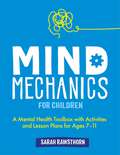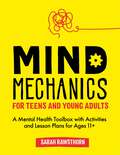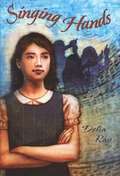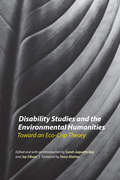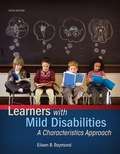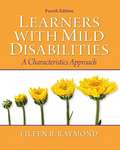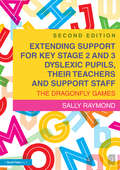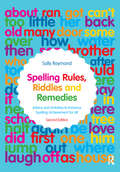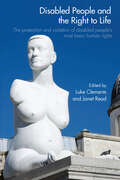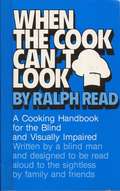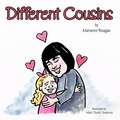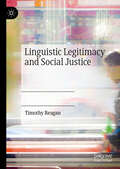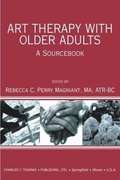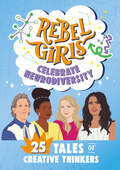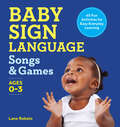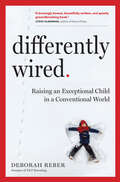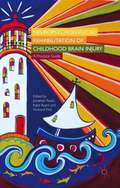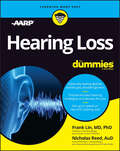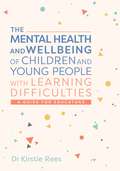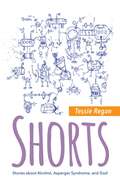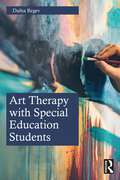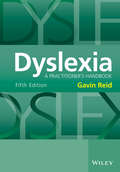- Table View
- List View
Mind Mechanics for Children: A Mental Health Toolbox with Activities and Lesson Plans for Ages 7-11 (Mind Mechanics for Mental Health)
by Sarah RawsthornMind Mechanics is a comprehensive resource to support schools in teaching pupils about mental health. Drawing on a wide range of therapeutic interventions, including CBT, Behavioural Activation and Compassion-Focussed Therapy, it provides activities and lesson plans to empower children with the skills they need to manage their mental health throughout life.The book contains lesson plans, games and activities, assessment tools and information on risk factors and specific issues that might impact children. It also features photocopiable and downloadable worksheets, making the provision of mental health teaching simple. Mind Mechanics can be used flexibly as a full programme as part of the school's Personal, Social, Health and Citizenship curriculum, as a targeted intervention for a group or individual, or as a resource bank of individual activities to use as and when needed.
Mind Mechanics for Teens and Young Adults: A Mental Health Toolbox with Activities and Lesson Plans for Ages 11+ (Mind Mechanics for Mental Health)
by Sarah RawsthornMind Mechanics is a comprehensive resource to support schools in teaching pupils about mental health. Drawing on a wide range of therapeutic interventions, including CBT, Behavioural Activation and Compassion-Focussed Therapy, it provides activities and lesson plans to empower teens with the skills they need to manage their mental health throughout life.The book contains lesson plans, games and activities, assessment tools and information on risk factors and specific issues that might impact teens. It also features photocopiable and downloadable worksheets, making the provision of mental health teaching simple. Mind Mechanics can be used flexibly as a full programme as part of the school's Personal, Social, Health and Citizenship curriculum, as a targeted intervention for a group or individual, or as a resource bank of individual activities to use as and when needed.
Singing Hands
by Delia Ray<P>As one of three hearing daughters of deaf parents, 12-year-old Gussie Davis is expected to be a proper representative of Saint Jude's Church for the Deaf in Birmingham, Alabama, which is run by her father. So when Gussie starts to hum through signed services in the summer of 1948, Reverend Davis assumes she merely wants to sing out loud and sends her to a regular church downtown. But Gussie's behavior worsens, and she is not allowed to go on a much-anticipated trip; instead, she must help her father at the Alabama School for the Deaf. <P>Rebelling against the strict rules of the school, Gussie finally confronts the difficulties and prejudices encountered by the deaf community, all while still trying to find her own identity in the worlds of both the hearing and the deaf. <P>Drawing on firsthand accounts of her mother's own childhood with deaf parents, Delia Ray provides an inside look at the South in the 1940s. Lively humor, unforgettable characters, and meticulous research combine to make this a standout novel that offers keen insight into what it means to be hearing in a deaf world.
Disability Studies and the Environmental Humanities: Toward an Eco-Crip Theory
by Sarah Jaquette Ray Jay Sibara Stacy AlaimoAlthough scholars in the environmental humanities have been exploring the dichotomy between “wild” and “built” environments for several years, few have focused on the field of disability studies, a discipline that enlists the contingency between environments and bodies as a foundation of its scholarship. On the other hand, scholars in disability studies have demonstrated the ways in which the built environment privileges some bodies and minds over others, yet they have rarely examined the ways in which toxic environments engender chronic illness and disability or how environmental illnesses disrupt dominant paradigms for scrutinizing “disability.” Designed as a reader for undergraduate and graduate courses, Disability Studies and the Environmental Humanities employs interdisciplinary perspectives to examine such issues as slow violence, imperialism, race, toxicity, eco-sickness, the body in environmental justice, ableism, and other topics. With a historical scope spanning the seventeenth century to the present, this collection not only presents the foundational documents informing this intersection of fields but also showcases the most current work, making it an indispensable reference.
Learners with Mild Disabilities: A Characteristics Approach
by Eileen B. RaymondLearners with Mild Disabilities: A Characteristics Approach focuses on high-prevalence disorders affecting school learners today, including mild intellectual disabilities, learning disabilities, emotional/behavioral disorders, ADHD, autism spectrum disorders, and communication disorders, as well as on low incidence conditions that may manifest in the milder range, for example sensory, physical, health, or TBI. The author lays the foundation for addressing the needs of special learners and then focuses on learners from the perspective of alternative non-categorical frameworks. She describes students with disabilities and related conditions with respect to a variety of individual strengths and needs, considering their cognitive, language, academic learning, and social/emotional characteristics. Readers see how to apply these conceptual frameworks by analyzing a number of vignettes and extended case studies based on the experiences of real children and teachers. Designed as a primary text for use in undergraduate and graduate courses addressing the characteristics of learners with high prevalence or milder levels of disability, the text is also useful for the first specialized course in a special education program. It supports programs in inclusive education or the growing area of generic special education. The Enhanced Pearson eText features embedded video.
Learners with Mild Disabilities: A Characteristics Approach (4th Edition)
by Eileen B. RaymondA critical look at four high-prevalence mild disabilities as seen from several unique perspectives: mild intellectual disabilities, learning disabilities, emotional/behavioral disorders, and ADHD. The text also considers the Autism Spectrum Disorders, such as HFA and Asperger's Syndrome, in addition to other mild conditions such as communication disorders. This text looks first at the concept of disability from conventional categorical perspectives, and then shifts to focusing on learners from the perspective of alternative, non-categorical frameworks. It describes students with disabilities and related conditions with respect to a variety of individual strengths and needs, considering their cognitive, perceptual, language, academic learning, and social/emotional characteristics. The reader is encouraged to apply these conceptual frameworks through the analysis of numerous vignettes and extended case studies that are drawn from the experiences of real children and teachers throughout the text. Using this non-categorical framework best prepares special educators for the complex job of providing effective services to the full and unique spectrum of students with mild disabilities.
Your Hour
by M. RaymondFather Raymond, a Trappist monk, tells several stories of people who have always had deep faith in God's love and mercy, or who have come to know God through suffering and meditation. Each story is a beautiful and thought-provoking meditation on life and the afterlife.
Extending Support for Key Stage 2 and 3 Dyslexic Pupils, their Teachers and Support Staff: The Dragonfly Games
by Sally Raymond"This isn't learning: this is fun!" - dyslexic pupil "Fantastic ideas that engage learners in their learning: thank you!" - Teaching Assistant "I like finding tactics which help me win!" dyslexic pupil "My son is now asking to play spelling games!" - parent "I like playing homework games with my dad." - dyslexic pupil "Its easy to adapt a game to suit different topics." Teacher "Things aren't so difficult now I know how to make hard things fun." dyslexic pupil Dragonfly Games is designed for use with small groups of dyslexic pupils. These practical and varied resources can be used inside and outside of the classroom to encourage over-learning and revision of curriculum topics. Stimulating and fun to do, the games help pupils: Overcome specific barriers to learning through the use of experience, over-learning and discovery Master skills beyond those of literacy and numeracy development, including thinking skills, tactical strategies, sequential application and gamesmanship. Devise their own games, developing their ability to use varied methods of application, useful for overcoming learning weaknesses within their own specific profile. . Fully updated in its second edition, this book builds on the success of the author’s Dragonfly Worksheets, as featured in her previous book Supporting Dyslexia Pupils Across the Curriculum and can be used independently or in conjunction this resource. Dragonfly Games further extends the practitioner's portfolio of materials designed to successfully and effectively support the dyslexic learner. Also available from this author Supporting Dyslexic Pupils Across the Curriculum, 2nd edition, 978-1-138-77462-9 Spelling Rules, Riddles and Remedies 978-0-415-71000-8
Spelling Rules, Riddles and Remedies: Advice and Activities to Enhance Spelling Achievement for All
by Sally RaymondSpelling Rules, Riddles and Remedies is for anyone supporting learners who are struggling to understand the world of English spellings. This book engages learners and enhances their learning by using practical and dynamic resources to reveal the cause and effect of spelling confusions. By posing opportunities for understanding memory-related applications, learners and their spelling tutors are empowered with the knowledge and resources required to amend, improve and proliferate spelling success. In this revised edition, bestselling author Sally Raymond offers further unique and accessible 'Spelling Detective' and 'Learning Application' activities and explores ways of empowering individual learners. Offering a wealth of effective approaches to improving spelling, chapters: demonstrate how spelling errors can be examined to develop solutions for individual learners; show how to engage pupils through use of meta-cognition; highlight the reasons why spelling abilities might fail; explore and resolve the impact of English spelling irregularities and deviations through informed discovery; illustrate how to use mnemonics and story-lines to link tangible prompts to confident spelling ability; provide structured game-play and challenging practice lessons. boost pupils’ achievement through the strategic use of multiple processing skills. Clearly presented and highly illustrated, this book encourages creativity and shows teachers how to adopt and adapt a variety of learning strategies to suit different needs. Targeting learners in Key Stage 2 upwards, Spelling Rules, Riddles and Remedies brings a wealth of ideas to stimulate spelling success.
Disabled People and the Right to Life: The Protection and Violation of Disabled People’s Most Basic Human Rights
by Janet Read Luke ClementsThe most basic of human rights, the right to life, is the focus of this book. 'Human rights' has increasingly come to be seen as a significant framework, both to aid understanding of the experiences of those who face oppression, and to underpin social, legal and political measures to counter it. Disabled People and the Right to Life uses this framework to explore how disabled people’s right to life is understood in different national contexts and the ways in which they are – or are not – afforded protection under the law, emphasizing the social, cultural and historical forces and circumstances which have promoted disabled people’s right to life or legitimated its violation. Written by an international panel of contributors including individuals holding public office, academics from the fields of law, social policy, disability studies and bioethics as well as practitioners and activists attempting to further disabled people’s human rights, this truly interdisciplinary book will be of interest to students and researchers of disability, law, social policy and human rights.
When the Cook Can't Look: A Cooking Handbook for the Blind and Visually Impaired
by Ralph Read<P>This cooking handbook, designed to be read to the blind and visually impaired by a relative or friend, is written by one who is most qualified-- a blind person. <P>Ralph Read lost his sight in adulthood and now, from personal experience, makes available to other sightless individuals his innovative, sensible and safe methods for coping in the kitchen.
Reader's Digest Select Editions, Volume 126 (Reader's Digest #126)
by Reader's Digest Association Inc.This Reader's Digest volume consists of two condensed selections: Chesapeake Blue by Nora Roberts, and, Eat Cake by Jeanne Ray. The first selection, Chesapeake Blue is about "Seth Quinn, a gifted international artist, returns home to Maryland ready to settle down. But a daring new passion collides with a dark secret from his past, and his life becomes anything but settled." The second condensed book, Eat Cake is about how cake brings a family through crises: "Nothing brings a family together like a warm, delicious slice of cake! Or so believes Ruth Hopson, who bakes so much that her husband, mother, and teenage daughter beg her to stop. But little does Ruth know how important her baking will become to her family when life takes a turn for the worse--and Ruth discovers a strength she didn't even know she had."
Linguistic Legitimacy and Social Justice
by Timothy ReaganThis book examines the nature of human language and the ideology of linguistic legitimacy – the common set of beliefs about language differences that leads to the rejection of some language varieties and the valorization of others. It investigates a broad range of case studies of languages and dialects which have for various reasons been considered 'low-status' including: African American English, Spanglish, American Sign Language, Yiddish, Esperanto and other constructed languages, indigenous languages in post-colonial neo-European societies, and Afrikaans and related language issues in South Africa. Further, it discusses the implications of the ideology of linguistic legitimacy for the teaching and learning of foreign languages in the US. Written in a clear and accessible style, this book provides a readable and pedagogically useful tool to help readers comprehend the nature of human language, and the ways in which attitudes about human language can have either positive or negative consequences for communities and their languages. It will be of particular interest to language teachers and teacher educators, as well as students and scholars of applied linguistics, intercultural communication, minority languages and language extinction.
I Don't Want To Talk About It: Overcoming the Secret Legacy of Male Depression
by Terrence RealReal provides an informative and easy-to-read explanation of depression as men experience this illness. An integrated presentation. Technical terms are clearly explained.
Art Therapy with Older Adults: A Sourcebook
by Rebecca C. Perry MagniantDivided into three sections, this book proposes creative art therapies interventions, directives, and ideas along with model programs and examples of work in different settings. Section I discusses art therapy interventions and ideas for treatment, including working with ceramics, sandtray, memory books, and directives. Section II deals with working with specific populations of older adults, caregivers of older adults, and older adults in long-term care and residential settings. In addition, working with older adults with Alzheimer's disease is addressed in this section. Section III focuses on working with individual older adult clients, home-based art therapy, grandmothers raising troubled teenagers, hospice patients, and mentally ill geriatrics.
Rebel Girls Celebrate Neurodiversity: 25 Tales of Creative Thinkers (Rebel Girls Minis)
by Rebel GirlsTRUE STORIES OF NEURODIVERGENT ICONSThis collection features 25 inspiring tales of neurodivergent artists, athletes, innovators, and more. Read about how these women and girls thought creatively, achieved their dreams, and advocated for the rights of neurodivergent people everywhere.Walk the runway with Madeline Stuart, the first professional model with Down syndrome. Steal the scene with Salma Hayek, the award-winning actor with dyslexia. Learn how journalist and TV host Lisa Ling thrives with ADD, and how Temple Grandin&’s autism has opened up new and compassionate ways of interacting with animals.This book pairs inspiring, easy-to-read text with colorful full-page portraits created by female and nonbinary artists from all around the world. Plus, scannable codes let you listen to longer stories on the Rebel Girls app!
Baby Sign Language Songs & Games: 65 Fun Activities for Easy Everyday Learning
by Lane RebeloBuild language skills with 65 signing activities for babies and toddlers The best way to teach your little one sign language is to make it fun and engaging! This book is filled with easy songs and games that make practicing sign language a playful part of your daily routine with your baby. What sets this baby sign language book apart from the others: Baby sign language basics—Learn more about sign language for babies and toddlers, how it can help support your little one's overall language development, and how to get started with age- and stage-appropriate signs. Easy-to-follow exercises—Discover step-by-step instructions, expert tips, and helpful illustrations with every sign language activity. Learning through play—Teach your baby fundamental vocabulary words with silly songs like Baby Shark and fun games like Teddy Bear's Birthday. Sing, play, and bond with your little one as they develop sign language skills that will last a lifetime.
Differently Wired: Raising an Exceptional Child in a Conventional World
by Deborah ReberToday millions of kids are stuck in a world that doesn't respect, support, or embrace who they really are—these are what Deborah Reber is calling the “differently wired” kids, the one in five children with ADHD, dyslexia, Asperger’s, giftedness, anxiety, sensory processing disorder, and other neurodifferences. Their challenges are many. But for the parents who love them, the challenges are just as hard—struggling to find the right school, the right therapist, the right parenting group while feeling isolated and harboring endless internal doubts about what’s normal, what’s not, and how to handle it all. But now there’s hope. Written by Deborah Reber, a bestselling author and mother in the midst of an eye-opening journey with her son who is twice exceptional (he has ADHD, Asperger’s, and is highly gifted), Differently Wired is a how-to, a manifesto, a book of wise advice, and the best kind of been-there, done-that companion. On the one hand it’s a book of saying NO, and how it’s time to say no to trying to fit your round-peg kid into society’s square holes, no to educational and social systems that don’t respect your child, no to the anxiety and fear that keep parents stuck. And then it’s a book of YES. By offering 18 paradigm shifts—what she calls “tilts”— Reber shows how to change everything. How to “Get Out of Isolation and Connect.” “Stop Fighting Who Your Child Is and Lean In.” “Let Go of What Others Think.” “Create a World Where Your Child Can Feel Secure.” “Find Your People (and Ditch the Rest).” “Help Your Kids Embrace Self-Discovery.” And through these alternative ways of being, discover how to stay open, pay attention, and become an exceptional parent to your exceptional child.
Neuropsychological Rehabilitation of Childhood Brain Injury
by Jonathan Reed Katie Byard Howard FineIncreasing numbers of children and young people are surviving road traffic accidents and birth complications but are being left with neurological disability. Although a brain injury can be a potentially devastating childhood medical condition Neuropsychological rehabilitation of childhood brain injury explores the developing field of neuropsychology to aid rehabilitation. The book brings together contributions from leading international clinicians and researchers to describe not only what we understand about childhood brain injury but also what has been demonstrated to help and possible innovative directions that can be taken in the future. By including a comprehensive review of the neuropsychological consequences of child brain injury alongside solid research outcomes this book provides an authoritative guide on how to help children with brain injury using neuropsychology.
Hearing Loss For Dummies
by Nicholas Reed Frank LinImprove your hearing, enhance your life With new advice on just-released over-the-counter hearing aids Hearing loss can be frustrating, but in fact it&’s common and treatable. Hearing Loss For Dummies, written by top experts in the field in collaboration with AARP, walks you through how to get the help you need to clearly hear the sounds of life—whether you&’re at home, at work, or out and about. And hearing health is critical: Hearing loss can increase your risk of falls and injuries, isolation and depression, and even cognitive decline and dementia. Authors Frank Lin and Nicholas Reed at the Johns Hopkins School of Medicine lay out the steps to hearing health: Understanding how hearing works—and how it changes as we age Finding specialists you can trust Determining whether you need testing and, if so, where to turn Learning practical solutions for hearing better at home, at work, on the phone, and in restaurants and theaters Choosing the right hearing aid, including just-approved over-the-counter hearing aids, and getting them adjusted to work for you Exploring the pros and cons of cochlear implants and other surgical options Covering the costs of hearing health careIf you&’re concerned about your own or a friend or relative&’s hearing, this is the one book you&’ll need. For what can seem like a complicated, stressful and lengthy process, Hearing Loss For Dummies tackles the topic head-on and provides you with expert guidance to put your mind at ease on the path to better hearing.
The Mental Health and Wellbeing of Children and Young People with Learning Difficulties: A Guide for Educators
by Kirstie ReesKnowing when children and young people are struggling, and identifying the best ways of supporting them is vital. This is all the more important when working with children with varying learning difficulties who may not always be able to communicate their feelings.By demystifying terms such as mental health, wellbeing, learning difficulties and the sensitivities surrounding labels, this practical and evidence-based guide helps you achieve an in-depth understanding of the children and young people you work with. It provides you with skills and knowledge for supporting their mental health and wellbeing in educational settings - from nursery to secondary school in both mainstream and specialist environments with talking and non-verbal communication approaches to accommodate varying needs. Most importantly its holistic approach explores the interaction between the child's learning difficulties and the psychological, social and environmental factors which influence how they manage their ups and downs in life. This lets you think beyond the child and the classroom.
Shorts: Stories about Alcohol, Asperger Syndrome, and God
by Tessie ReganTessie Regan's collection of short stories, poems and quirky illustrations reveal the world as seen through the haze of alcohol addiction, the eccentricity of Asperger's and the ups and downs of an unconventional spiritual journey. Her honest and witty observations tell of moments of elation, confusion and hopeless desperation felt throughout her life, from the backbreaking pursuit of $100 in 'Lawnmower' to contemplating the start of her alcoholism at age 13 in 'The Jumping Off Place.' These brief, insightful accounts paint the truthful, warm-hearted, and wryly humorous portrait of a soul in search of reconciliation. This collection is essential reading for anyone on the autism spectrum dealing with alcoholism, substance addiction or mental health issues, and for their friends and families, as well as the professionals working with them.
Art Therapy with Special Education Students
by Dafna RegevArt Therapy with Special Education Students is a practical and innovative book that details the best suitable ways to work in the field of art therapy with special education students. This book provides the reader with practical approaches, techniques, models, and methodologies in art therapy that focus on special education students, such as those with ASD, ADHD, learning disabilities, behavioral disorders, and students with visual and hearing impairments. Each chapter addresses a specific population, including an overview of the literature in the field, along with descriptions of practices derived from interviews with experienced art therapists who specialize in each population. The chapters cover the therapeutic goals of each population, the specific challenges, intervention techniques, and the meaning of art. Dedicated working models that have emerged in the field and collaborative interventions involving parents and staff members, along with clinical illustrations, are also available throughout the book. Art therapists and mental health professionals in the school system will appreciate this comprehensive collection of contemporary work in the field of art therapy with special education students.
Dyslexia
by Gavin ReidThe main purpose of this new edition is to incorporate the most recent theoretical and practical research in the field of dyslexia and literacy and present it in a user friendly format for Practitioners. It refers to the most recent government reports on literacy and dyslexia in a number of countries such as, USA, UK, Canada, New Zealand and Australia. Each chapter has a summary at the start and, at the end, key points and 'points to consider' are looked at.
